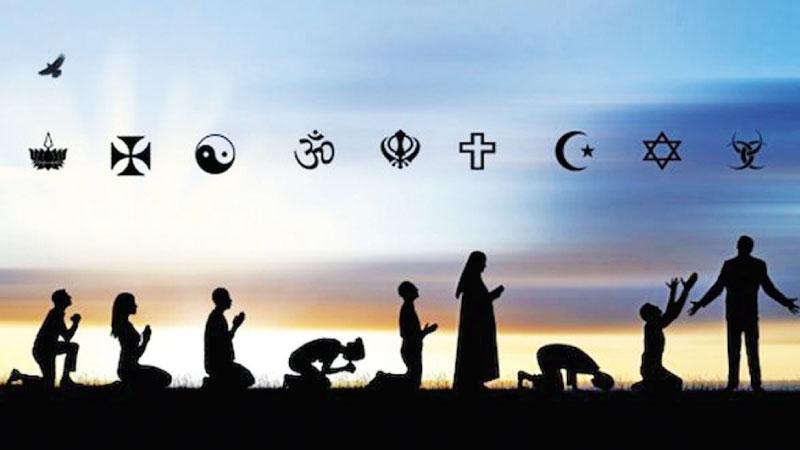
What’s religion to you? Most of us would answer that it gives positive values - like peace, happiness and well-being. We’d even say that it expounds some universal truths, to make us better people. Without the sense of ease, certainty and guidance religion brings, most of us would be lost in this incredibly complex, uncertain and seemingly treacherous world. However, of late, religion and many of its leaders and institutions have faltered. It has failed to speak and deliver morality, truth, humility and peace.
Lost in corrupt motives and hungry for power and privilege, the institutions have failed to grasp the realities and advancements of the modern world. Worse still, some have forgotten the ideals of their founders. In the absence of intellect, empathy and mores, religion’s clung to preaching absolute devotion to its structures. Some keep hanging on to and propagating notions of death to infidel, superiority over outsiders and discrimination of women and those left behind.
To borrow a religious phrase, religion needs to renounce those false idols loudly and immediately. Foremost among them is any diction that claims destruction, subjugation and discrimination. Not only do the dictions need to go, but also the supporting cultural stories, language and practices that in anyway influence the followers’views. Why? Because these false idols aren’t relevant.
Ideally, religion needs to let go of anything that doesn’t live up to logical or evidence-based scrutiny. That would be the death of religion as we know it. The least it can do to be relevant is to disown any diction that contradicts morality.
Not all religions are equally culpable. The majority of followers of most regions don’t believe non-believers deserve to be wiped out. However, Abrahamic religions are the worse offenders. Not that the eastern ones don’t have their own shady beliefs often against what the founders taught.
When cruel teachings are challenged, the apologists usually claim that’s not the intended meaning and will bring on incoherent arguments to prove their point. But here’s the problem, the culpable verses are taught as-is to innocent children who learn them by heart.
Things get worse when it comes to culture. A culture group is most visible in the stories that are passed on from generation to another. If you carefully listen beyond the tales of religious heroism, it’s not rare to find tales of murder, oppression and domination in the name of God. The practice encourages worship of objects, hierarchies and men in power. In most religions, women are an afterthought - a possession of men, often much inferior.
Often challenges to religion are socially and politically frowned upon as hate speech with dire consequences if you’re in the wrong place. How can an institution go on claiming in public spaces and teaching millions of children that we, the doubters of one or many religions deserves to die, just because we don’t believe in their gods? How can they chastise and oppress someone for being different by birth or by choice? How can they claim that women, more than 50% of the population of the world, are less worthy than men? These beliefs preached, taught and enacted go against rules of democratic nations like Sri Lanka violating our inalienable rights to live, be safe, be free.
Yes, the right to believe is a human right. What religion cannot do is to coerce others to accept or enact their beliefs. The problem with modern religious institutions and their cultural mobs is that they function to merely provide a false sense of comfort and superiority to their groups and to control what people do with their lives. For many, religion is an inheritance endowed at birth. It’s only a few who choose a religion. Founders of some religions have gone to great length to explain virtuous behavior. The saddest part is that there is preaching of coercion, superiority and discrimination against the advice of the founders.
We should feel for the fundamentalists, martyrs and balasenas. That they are at odds with the fast-changing world is likely to result in insufferable internal and external conflict. They are merely a symptom of the ills, albeit perhaps not the intention, of organised religion. They are pawns in a power game, where no one wins now or ever, played to appease the egos and power of the hierarchies that have no peaceful or rational future in this world.
The world’s most developed and developing nations are also its least religious. Religion seems to provide some value to the billions that go to services or meditate in search of hope and wellbeing. Religion has the power to put people at peace, teach them better ways to live and make a positive difference. The problem is it can no longer do so unless it drops the counter-productive, outdated and illogical answers that rely on a false sense of wellbeing, superiority and ignorance.
That religion needs better ways is not novel. You only need to look at perhaps the most prominent religious leader alive: Pope Francis. He’s moved the church forward by putting responsibility for global warming with men, being more accepting of differences, showing incredible humility and pushing for more equality. While he’s faltered on some issues, he seems to have the values that the church espouses - compassion, peace, humility and clemency.
Religion has a chance to be a part of creating a better world. We must warn our kids of the pitfalls of blind, irrational and self-destructive belief.
